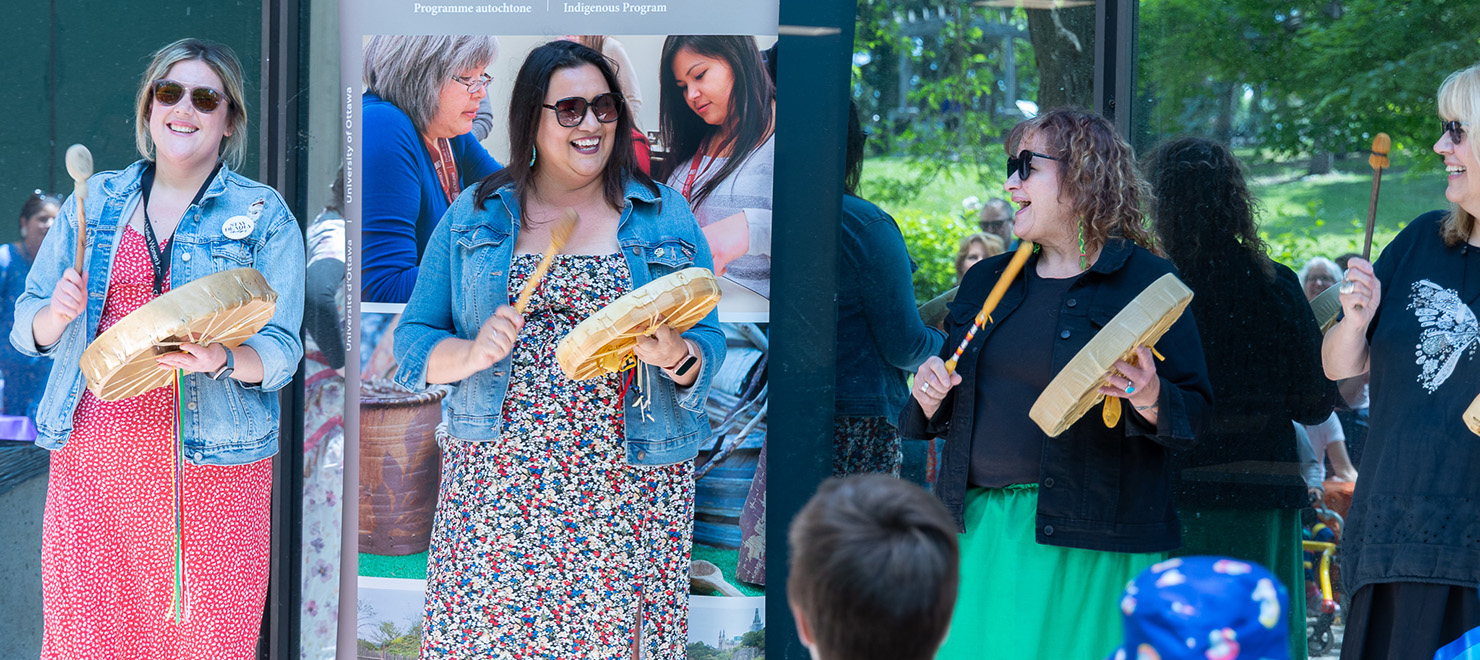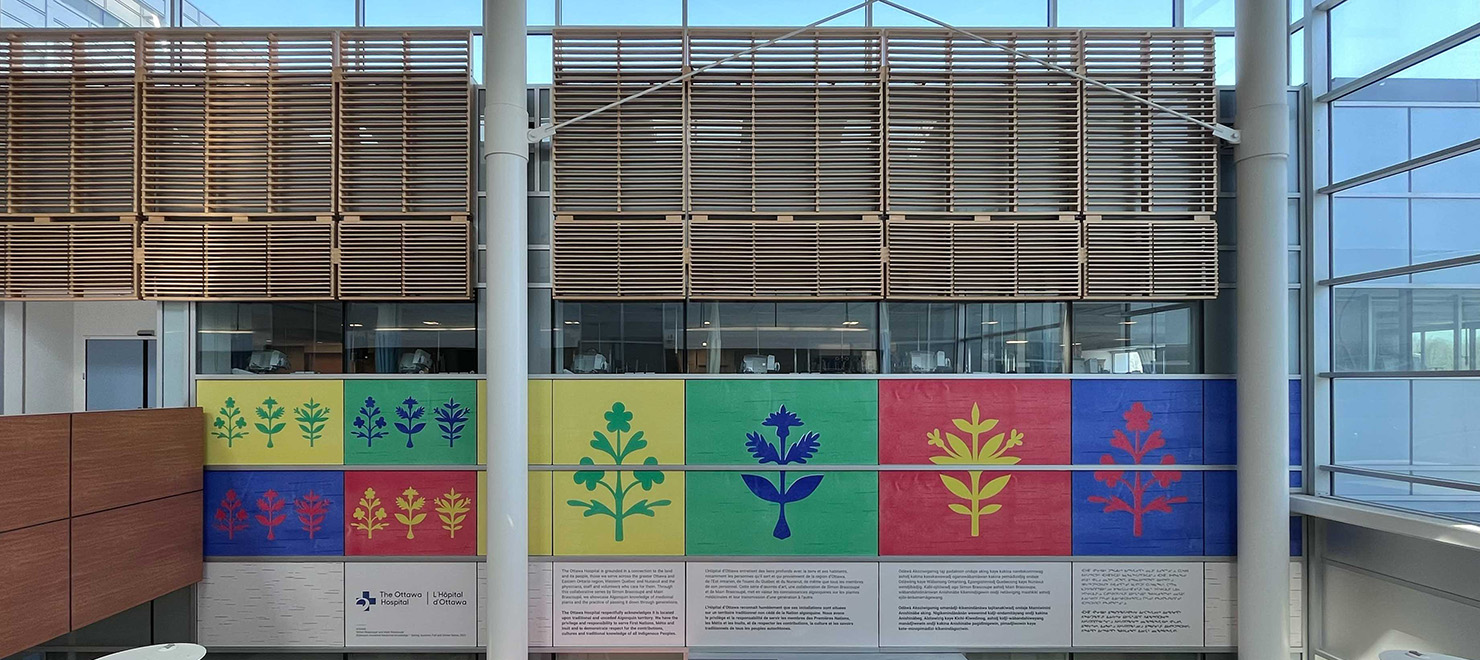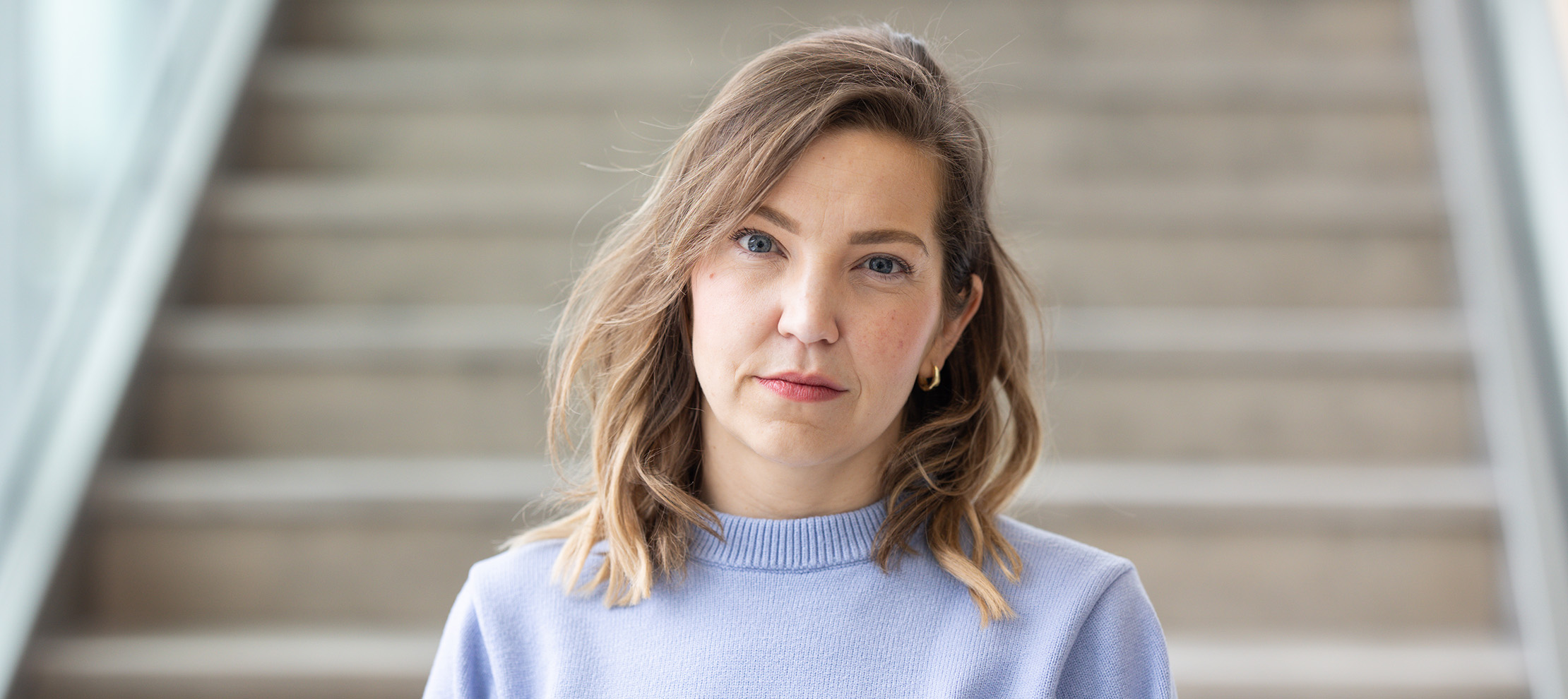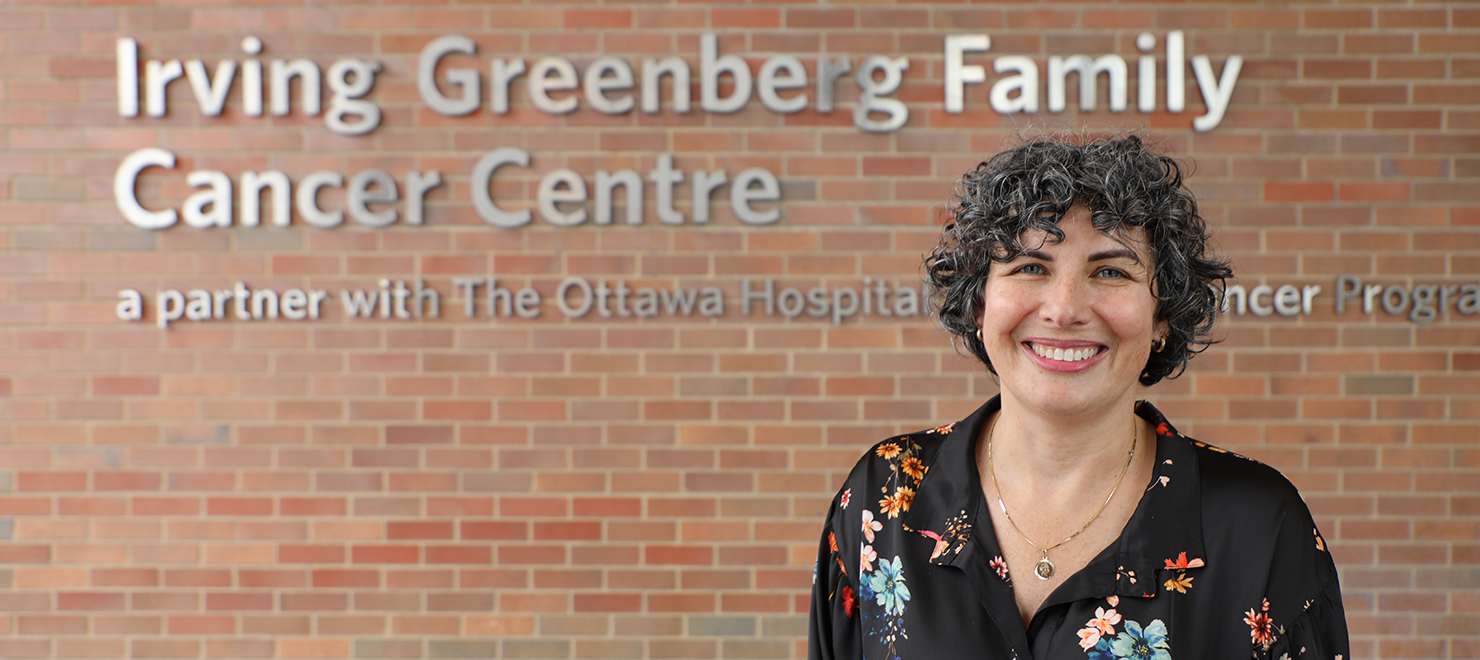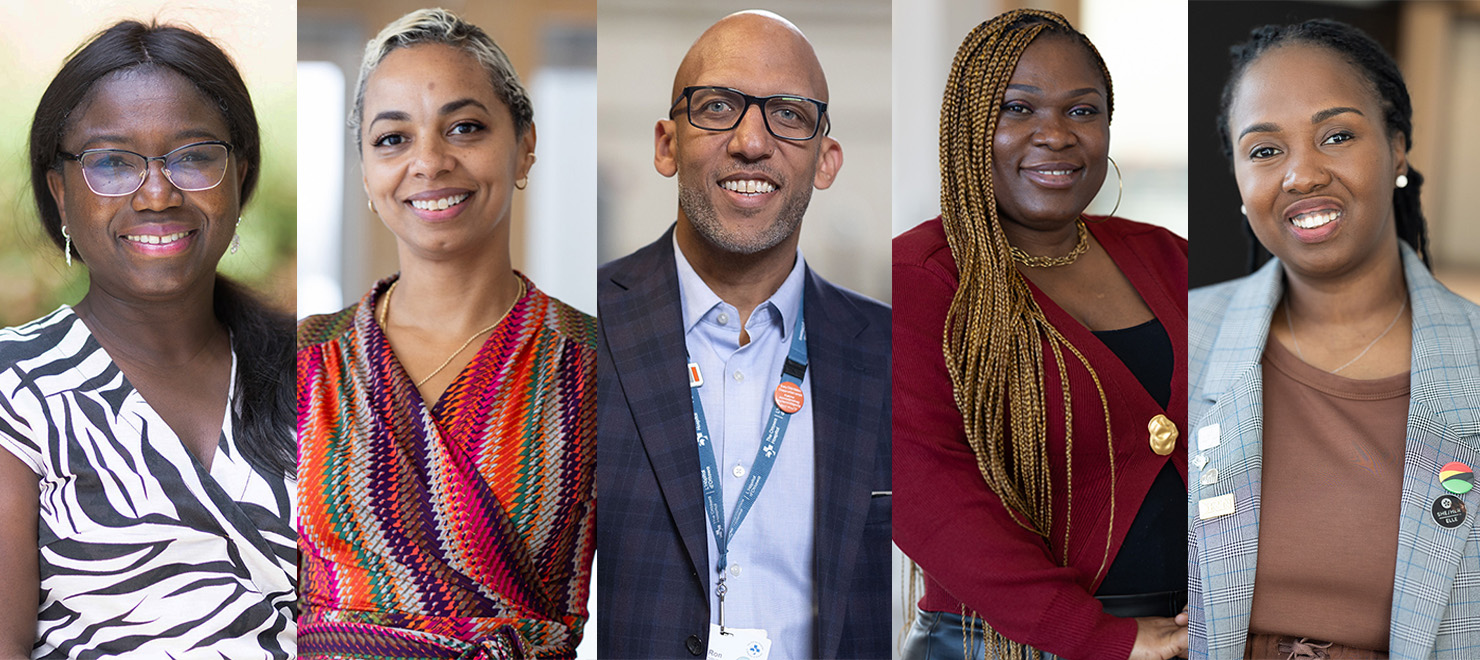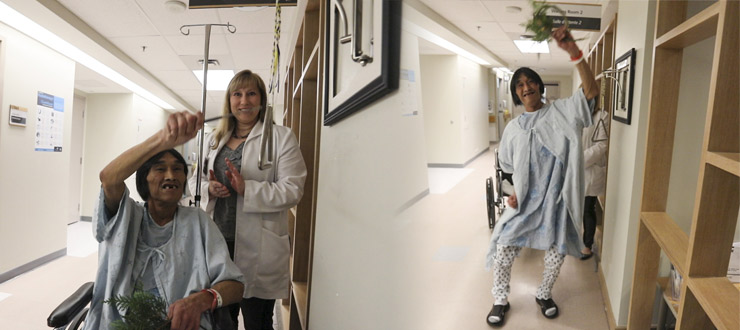
Inuk patient Robert Ukaliannuk rang the triangle after his last radiation treatment and celebrated with a “shake it all off” traditional healing dance.
Other patients clapped as Robert Ukaliannuk rang the triangle after his last radiation treatment and celebrated with a “shake it all off” traditional healing dance. But the moment was bittersweet, given the long road that brought him to The Ottawa Hospital’s Cancer Centre.
“It’s part of healing, to shake it all off, like a dog. Let it go and move on,” said Ukaliannuk, 49, who became sober a year before being diagnosed with Stage 4 lung cancer.
Just before his discharge from hospital in May, Ukaliannuk asked to share his life story, which includes homelessness, parents who are alcoholics, two brothers who committed suicide and a five-year-old sister who went missing at residential school and was later found murdered.
“They didn’t tell my parents,” Ukaliannuk said. “It was before I was born. I was named after her, in our culture. Alakah. She was my oldest sister.”
Ukaliannuk expressed his gratitude to the nurses and doctors at The Ottawa Hospital who cared so well for him. A biopsy of his upper lungs has left him speaking in a whisper, but he persevered in telling his story, which illustrates how colonization and the residential school system continue to affect Indigenous people.
“There are reasons why we see too many Indigenous people on the streets,” said Carolyn Roberts, Aboriginal Nurse Navigator in the Cancer Centre. “’Cultural competency’ is understanding why he lived a rough life and how he came to be here.”
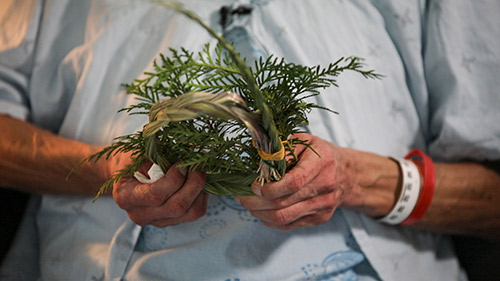
Robert Ukaliannuk’s roommate in a treatment centre introduced him to the First Nations tradition of using sweetgrass and cedar for cleansing and healing. “It smells good. It keeps me grounded,” he said.
Born in Igloolik, in Nunavut, Ukaliannuk grew up in Iqaluit but moved to Ottawa about 20 years ago. He took a carpentry course and worked as a labourer, but lived mostly on the streets. About a year ago, he began to turn his life around. He went to a treatment centre and became sober. At the Wabano Centre for Aboriginal Health on Montreal Road, he belongs to support groups, uses the sweat lodge, learned how to pray, and sees his family doctor.
“The residential school affected my whole family. People don’t know that,” Ukaliannuk said. “My Dad and my Mom became addicts because they didn’t know how to deal with it. They were blaming each other about my oldest sister because she just disappeared…. My Mom found out about my sister’s grave 50 years later. It’s in Quebec City.”
“Loss and grief accumulates generation after generation and results in an eruption of trauma symptoms and behaviours,” explained Wabano’s My Life, My Wellbeing report. “Just as intergenerational trauma has an effect through a family and a community, so too can healing; it can be contagious.”
Sadly, Robert Ukaliannuk passed away shortly after sharing his story. The Ottawa Hospital is grateful to him for allowing his story to help shape improved care for patients.

Support patient care and research at
The Ottawa Hospital
You might also like…
Celebrating the summer solstice and National Indigenous Peoples Day: A photo essay
The summer solstice has deep spiritual and cultural significance for Indigenous communities around the world. Last week, we joined CHEO and uOttawa for a special celebration to mark this important time of year, and to recognize the rich cultures of First Nation, Inuit and Métis Peoples.
A guide to services at The Ottawa Hospital for Indigenous patients and families
At The Ottawa Hospital, we are committed to providing culturally safe care for First Nation, Inuit and Métis patients and families. We are working with Indigenous partners to identify ways we can make your time in hospital more welcoming. Here are some of the ways we’re doing that now.
“My story doesn’t have to be your story”: New screening test better at preventing cervical cancer
“I went from being a 32-year-old new mom to a cancer patient with an incurable diagnosis.” Alicia’s journey underscores the critical role of HPV testing in preventing cervical cancer. Discover how the new HPV test can save lives and find out how to book your cervical screening appointment with our “Superscreener.”
By thinking differently, this research team is improving the lives of people with cancer
Taking a different approach to clinical trials, the REthinking Clinical Trials (REaCT) program aims to answer some of the most important and practical questions that affect both patients with cancer and our health-care system. Find out what sets REaCT apart and makes the program so special to participants like Beth.
February is Black History Month
Five members of The Ottawa Hospital’s Black community reflect on what this month means to them, their heritage and the importance of building a truly equitable health care system.
The place to be: The Ottawa Hospital recognized as one of Canada’s most admired corporate cultures
The Ottawa Hospital (TOH) has been named one of Canada’s most admired corporate cultures. Guided by compassion and commitment to patient care, TOH has developed a workplace culture that inspires confidence and trust in our employees, patients and family members.


 To reset, hold the Ctrl key, then press 0.
To reset, hold the Ctrl key, then press 0.
